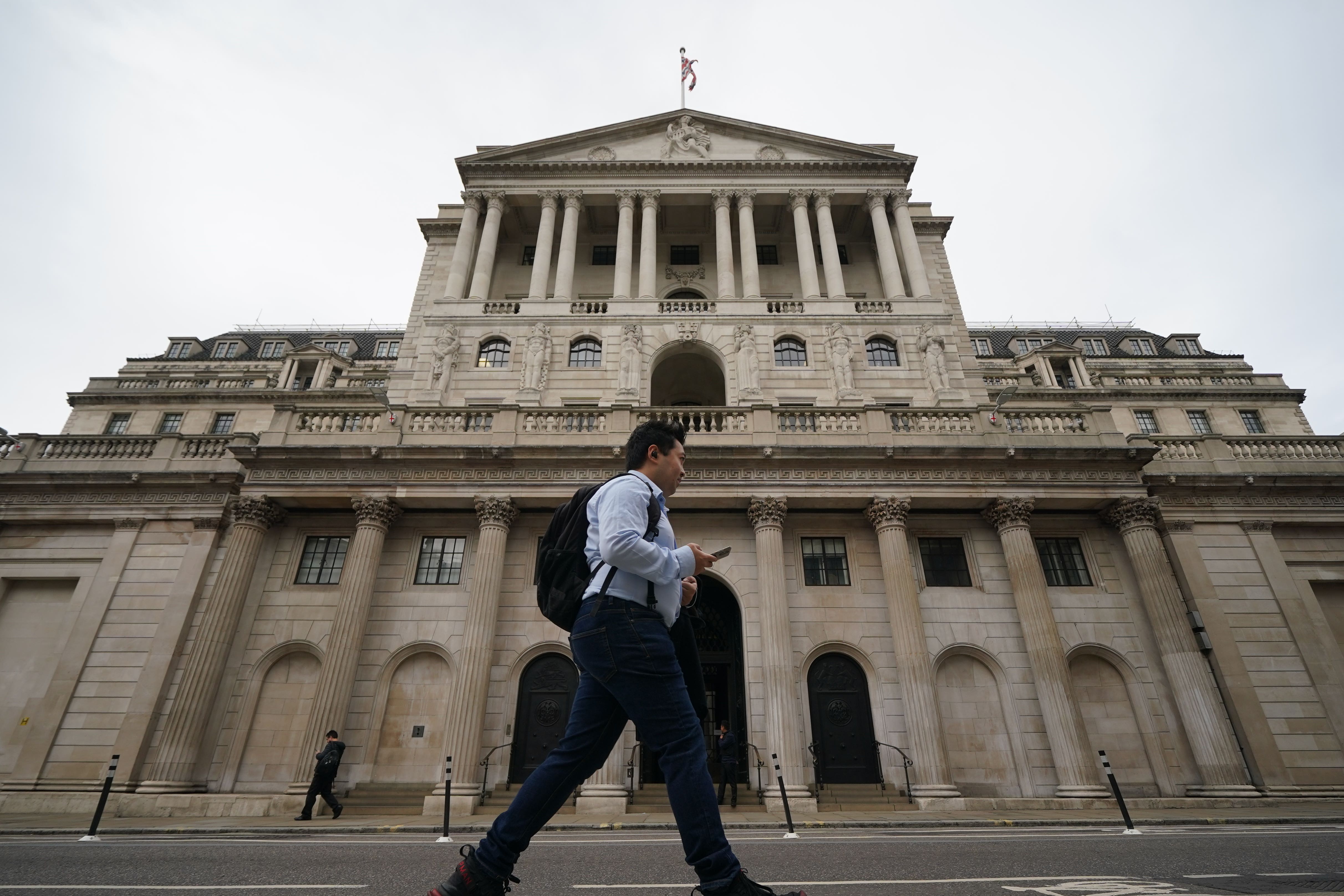Bank of England pushes back start of gilt sale to November 1
It came after the central bank earlier denied a postponement of plans to start selling government bonds.

Your support helps us to tell the story
From reproductive rights to climate change to Big Tech, The Independent is on the ground when the story is developing. Whether it's investigating the financials of Elon Musk's pro-Trump PAC or producing our latest documentary, 'The A Word', which shines a light on the American women fighting for reproductive rights, we know how important it is to parse out the facts from the messaging.
At such a critical moment in US history, we need reporters on the ground. Your donation allows us to keep sending journalists to speak to both sides of the story.
The Independent is trusted by Americans across the entire political spectrum. And unlike many other quality news outlets, we choose not to lock Americans out of our reporting and analysis with paywalls. We believe quality journalism should be available to everyone, paid for by those who can afford it.
Your support makes all the difference.The Bank of England has said it will delay the sale of Government bonds to November 1 due to the fiscal announcement later this month.
The central bank had been due to start buying UK government bonds, called gilts, on October 31.
It came as the bank denied reports earlier on Tuesday that it would postpone the bond sale programme in an attempt to allow battered gilt markets to recover following the mini-budget chaos.
“The first gilt sales operation was scheduled to take place on October 31 and proceed thereafter,” the Bank said in a statement on Tuesday evening.”
“In light of the Government’s fiscal announcement now scheduled for October 31, the first gilt sale operation will now take place on November 1.”
New Chancellor Jeremy Hunt is set to unveil the fiscal announcement at the end of the month, which will backtrack on a raft of previous tax cut plans after predecessor Kwasi Kwarteng’s mini-budget shook market traders.
The Bank of England update came after senior officials at the central bank were reported to have decided to delay the plan to offload at the end of this month some of its £838 billion of UK government bonds – or gilts – bought under the so-called quantitative easing programme.
As part of its emergency bond-buying action launched late last month, the Bank said it would postpone this plan – known as quantitative tightening (QT) – from October 3 until the end of October.
The Financial Times reported that it was now expected to put QT back further after senior figures at the Bank look to give more time for the “very distressed” gilts market to recover.
This morning's FT report that the BoE has decided to delay MPC gilt sales ('QT') is inaccurate
But the Bank dismissed the report early on Tuesday, sending the pound lower, to 1.126 US dollars at one stage and impacting gilts after Monday’s bounceback.
The pound has since rebounded to 1.132, but the bond markets were shut at the time of the Bank’s fresh statement.
A Bank spokesman had said: “This morning’s FT report that the BoE has decided to delay MPC gilt sales (‘QT’) is inaccurate.”
Experts and investors have been increasingly calling for the Bank to hold its QT plan, given fears that it could trigger another sell-off of gilts.
Gilts rallied on Monday as financial markets were placated by new Chancellor Jeremy Hunt’s emergency statement that tore up almost all of his predecessor Kwasi Kwarteng’s tax-cutting plans, with yields on 30-year government bonds dropping by around 10%.
But the rebound has still not undone the impact of the recent market turmoil, with yields significantly higher than the 3.75% level seen before Mr Kwarteng unveiled his disastrous mini-budget on September 23, and rising back up by another 0.5% on Tuesday.
The latest reaction to the Bank’s QT denial shows how delicate the gilt markets still are.
Former pensions minister Baroness Ros Altmann is among those who have urged the Bank to completely halt its plan to offload £80 billion of gilts.
The Bank must put its QT on hold... not telling markets that it isn’t about to step into the market with £80 billion of sales would invite further chaos
She recently told the PA news agency: “With £80 billion of gilt sales overhanging the market, there’s every likelihood the market will plunge again.”
“The Bank must put its QT on hold… not telling markets that it isn’t about to step into the market with £80 billion of sales would invite further chaos,” she added.
But the Bank is thought to be keen to show its independence from the Government and focus on its priority to fight rampant inflation through interest rate rises and reducing its balance sheet of bonds built up through QE.
Separately on Tuesday, deputy governor Sir Jon Cunliffe told the Treasury Committee that the Bank was continuing to monitor developments in conventional and index-linked gilt markets this week after its emergency bond-buying programme ended on October 14.
In a letter to committee chairman Mel Stride, Mr Cunliffe said: “The Bank and the FPC (Financial Policy Committee) will continue to monitor market conditions, channels through
which vulnerabilities could amplify future market stresses, and domestic and international progress towards reforms in the NBFI (non-banking financial institution) sector.”